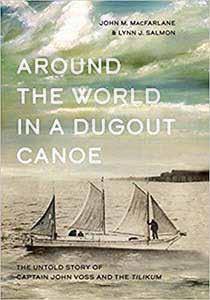
5 minute read
38 memoir

UNDERGRADUATE FELLOWSHIPS IN PUBLIC HUMANITIES
Six King’s students thrive in newly-created work experiences
by Josh Hoffman
THE UNIVERSITY of King’s College’s new work-integrated learning program, the Undergraduate Fellowships in Public Humanities, provided exciting professional experiences to a group of talented students, despite beginning in the middle of a pandemic.
The program launched last summer to offer King’s students short-term jobs at a variety of organizations and businesses. King’s Vice-President Dr. Peter O’Brien oversaw the program’s inception and described the fellowships as a way for “students to make the link between their studies and their future career possibilities.” In 2020 six students were awarded fellowships and learned—like the rest of us—how to work virtually in the COVID-19 era.
That the program took place is worth celebrating in its own right, given the uncertainty that characterized the past year.
“When the pandemic hit, we initially had to cancel the program,” said O’Brien. “Then as organizations made the transition to remote working conditions, we realized that we could still make this work.… This work-from-home variation on the program had the unintended benefit that students were able to be placed with organizations regardless of their geographical location— we had one student in Winnipeg working at an organization in Halifax, and another living in Halifax working for an organization in Calgary.”
Sophie Lawall was an Ocean Gallery Facilitator for the Discovery Centre in Halifax. “It was an amazing experience,” said Lawall, a third-year Early Modern Studies and English student. Lawall’s primary tasks included writing and interviewing for a new exhibit by Ruth Munro and researching literature on climate change research in Nova Scotia to create educational content for Ryan Jameson, manager of science education at the centre.
These were subjects Lawall knew nothing about. “I’m from the Prairies,” she joked. “I didn’t learn much ocean science.” Her job was to take information and rewrite it in a way that could be understood by elementary school students. She found she could determine what information was most crucial to include in less than 100 words of text by, “using the critical thinking and reading skills I’ve learned at King’s to understand that kind of information.”
Third-year History of Science and Technology student James Ersil, who is also studying acting at Dalhousie, was thrilled to hold an artistic internship with Outside the March, a Toronto-based theatre company.
“It was a dream come true,” Ersil said. They initially thought the position involved paperwork. It did, but they got to join in on the fun as well. Ersil participated in a weeklong phone call theatre experience called Ministry of Monday Mysteries that helped


actors work during the pandemic and provided entertainment for people stuck at home.
When Ersil was invited to participate in a reading of a new script with the other actors they were elated. “I was so grateful,” they said.
Watching the actors and witnessing the do-it-yourself nature of the theatre company reassured Ersil.
“It opened my eyes to the possibilities in that career,” they said. “Success isn’t one thing. Success just isn’t starring in a play. Success is working really hard on a show and everyone enjoying it.”
For Hannah van den Bosch, a fifth-year English (Hons) and Contemporary Studies student, the fellowship gave her experience working in a field aligned with her interests. Van den Bosch worked in marketing and communications for Halmyre, a firm of marketing strategy consultants in Toronto. As a member of the social media marketing team, Van den Bosch created content for the firm’s various social platforms.
“The team was very kind and accommodating,” she said. “They offered mentorship and guidance through immersion in day-today activities, as well as opportunities for me to learn and practice new written communication and editorial skills.”
Throughout the internship, Van den Bosch improved her professional writing skills, while contributing to a number of Halmyre’s campaign proposals, briefs, white papers and guides.
“I feel very lucky to have had this professional experience,” she said. “Not only do I feel prepared for future professional employment opportunities, but I have gained a number of new skills that are applicable to my studies and everyday life.”
The program is again accepting applications from students and employers through April 5. O’Brien said there are plans to coordinate this program with other initiatives in development. Remarking on the fact that each of the 2020 fellowships relied on communications skills in some form, O’Brien said the program reinforces the value of a humanities education:
“Our students have built up strong capacities to access information, think critically about it, and communicate in ways that can capture people's attention. Those are invaluable skills and we want to support students as they figure out what piece of the world might be able to benefit from their King's education. That, for me, is the chief benefit. … I hope that through this program and other initiatives that we are beginning to plan that students start to think about how their background in the humanities could play a role in the rest of their lives.” Decklan Rolle, a second-year journalism student, did his fellowship with the communications team for the School of Health Science at Dalhousie University. Rolle wrote for the university’s website and other platforms. He says his journalism education at King’s so far helped him excel in this position. “Being a part of the Dalhousie Health communications team was one of the best opportunities I could ever have,” he said.
Stephen Wentzell, a fourth-year journalism student, interned as an investigative writer and editorial assistant with Alberta Views magazine. Wentzell’s job involved researching and writing a 3,000-word investigative article on housing. “It was a valuable experience as a journalist to have the magical combination of time and funding to do a deep-dive into an issue like housing,” he said.
Liam Clarke-Cooper, a third-year arts student worked with St. George’s Youth Net to explore and navigate YouthNet’s extensive and largely untouched archive material. His work culminated in the production of a short documentary series about various aspects of YouthNet’s history, vision and scope of current programming. “The humanities education I’m getting at King’s helped me to do rigorous, often historical, research, tell an engaging story, and draw out interesting responses through communication with documentary subjects,” he said.
Funding support for King’s Undergraduate Fellowships in Public Humanities is generously provided through a gift from BMO Financial Group.







